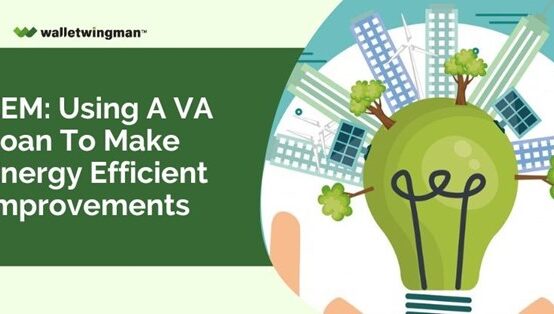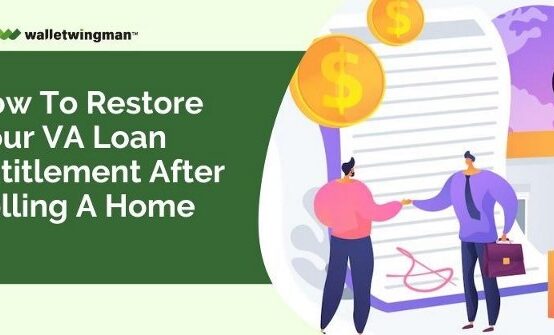VA loans differ from conventional mortgage loans in several ways. For example, in the context of VA loan vs traditional loan, VA loans allow eligible borrowers to skip the down payment, while conventional financing almost always requires a down payment.
VA loans also differ regarding the home appraisal process and requirements. The VA home appraisal has two primary objectives—determining value and assessing the condition—while a conventional loan appraisal primarily focuses on value.
Overview of VA And Conventional Loans

Before discussing appraisals, let’s lay some groundwork by defining conventional vs VA loan.
A VA loan is a mortgage loan that receives a partial guarantee from the U.S. Department of Veterans Affairs. This particular type of mortgage financing is available to military members, veterans, and certain qualifying spouses. The benefits of a VA loan consist of 100% financing, flexible qualification criteria, etc.
A conventional loan, on the other hand, does not receive any government insurance or guarantee. They originated (and are sometimes insured) within the private sector without direct government involvement.
So, in a broad sense, there are two main types of home loans. Borrowers can choose between government-backed mortgage programs like VA and FHA and conventional or non-government-backed home loans.
With that distinction out of the way, let’s talk about the purpose of a home appraisal and how that process works.
Definition and Purpose of a Home Appraisal

A home appraisal is an unbiased assessment of a property’s value conducted by a licensed or certified professional known as an appraiser. Home appraisers consider the property’s location, size, condition, and comparable sales.
The appraisal process aims to find the property’s fair market value—the amount it would probably sell for in the present market.
Most lenders require a home appraisal as part of the mortgage approval process. They want to ensure that the financed property is worth the loan.
In short, the appraisal helps the lender protect their investment and reduce risk. It also prevents them from lending more money than the property is worth. This is true for all types of home loans, whether conventional or FHA vs VA loan.
Simplified Overview of the Home Appraisal Process
The home appraisal process can vary from one real estate transaction to the next. But it usually follows a predictable sequence, as outlined below:
1. The Lender Orders It: When you are far enough along in the mortgage process, your lender will choose an appraiser and order the appraisal.
2. Appraiser Review: The appraiser will thoroughly evaluate the home inside and outside. They take photos and notes on the home’s condition, size, features, and upgrades.
3. Comps and Research: The appraiser will research recent sales of similar homes (“comps”) in the same area and analyze market trends.
4. Appraisal Report: The appraiser will compile their findings into a report. This determines a fair market value for the property based on their professional opinion.
5. Loan Decision: The lender uses the appraisal report, alongside other factors, to decide whether to approve your loan and at what terms.
These steps apply to both VA and conventional home appraisals. However, although VA offers some of the best VA loan rates, there are critical differences in the appraisal process. So, let’s explore those crucial differences.
How the VA Appraisal Process Is Different

As mentioned earlier, a VA loan home appraisal has two purposes. And we’ve already covered the first objective.
The appraiser wants to determine the home’s current market value based on the property’s overall condition and local market factors.
However, the Department of Veterans Affairs also requires appraisers to assess the property’s condition. The VA maintains a set of Minimum Property Requirements, or MPRs, to guide appraisers through the process.
This is different from a conventional mortgage loan that the government does not back. With a traditional home loan, the appraisal solely focuses on determining the property’s market value. They only consider the property’s condition as it relates to the market value.
To put it differently, a VA loan home appraisal goes beyond a standard appraisal in the sense that it has a “mini inspection” built into it.
In its official guide for home buyers, the Department of Veterans Affairs states:
“The appraisal provides an appraiser’s opinion of value of the home and whether it meets VA’s minimum property requirements. It also assures you and your lender that the value of the property is based on facts and market data, not just the seller’s opinion.”
But they go on to explain that the appraisal is different from a complete home inspection. While the VA does require appraisers to evaluate the home’s condition, they do not need a full and comprehensive home inspection.
They also encourage buyers to have an inspector “thoroughly inspect the home for defects and potential maintenance issues.”
Negotiating With the Seller

VA loan home appraisals also differ from conventional appraisals in terms of the negotiating process.
With a conventional loan, a home buyer will probably need an appraisal. However, the inspection process is usually optional. And if the buyer does choose to have an inspection, they can decide whether or not they want to ask the seller to make repairs.
A VA loan home appraisal works a little differently. If the appraiser determines that the property does not meet the VA’s minimum property requirements for some reason, the seller will have to address that issue before the loan can move forward.
However, despite common misconceptions, VA home appraisals are not overly strict or “nitpicky.” Most of the Minimum Property Requirements involve essential health and safety issues. They’re meant to ensure that the property is habitable for the new occupant.
Even so, there are some critical differences between VA and conventional appraisals regarding repair requests and seller negotiations.
Choosing the Best Mortgage for Your Situation
Ultimately, you must choose the type of mortgage loan that best suits your situation. And for many military members and veterans, the VA mortgage loan program offers more benefits than drawbacks.
Implications for Borrowers
Borrowers, especially active-duty service members and veterans considering their housing alternatives, must be aware of the differences between VA loan vs conventional loan.
The advantages, factors to be considered, and effects on the home-buying process vary depending on the appraisal technique used.
1. The veterans taking advantage of the VA loan system highly appreciate the thorough assessment that guarantees the very condition of the home and its safety.
Through the implementation of such tight MPRs and by emphasizing thorough inspections, VA appraisals offer assumable VA loan to protect veterans from investing in houses with unknown defects or off-putting health issues.
Strict appraisal standards may also lead to potential obstacles, e.g., delays in the appraisal process or the necessity to repair the property to meet the required Minimum Property Requirements (MPRs).
Veterans should ensure they understand the appraisal contingency in their mortgage agreement and closely work with their lenders and real estate agents to deal with any issues arising from home appraisals
2. On the one hand, borrowers who decide to go with conventional financing could find themselves with fewer appraisal requirements and more flexibility regarding property conditions.
Such a case is favorable in times when competition is real and speed is of the utmost importance. Nonetheless, traditional valuation appraisals can also be a bit volatile at times because appraised values may vary based on market conditions or lack of good comps data.
Loan applicants need to understand the possibility of the values of properties being corrected and should work with trusted experts to handle this issue quickly and suitably.
3. The implications for borrowers are significant: VA loan appraisals come as a guarantee of the safety and quality of the property but can result in unnecessary delays or repair contingencies.
Conversely, lenders must be mindful of the VA small business loan susceptibility to market dynamics, even with its advantages. This could introduce unforeseen difficulties, underscoring its importance in the lending process.
These three differences give borrowers the power to guide themselves through the home-buying process smartly to ensure fiscal goals and housing preferences are met while avoiding the risks.
4. When it comes to VA assessments, which could demand more paperwork and scrutiny, the appraisal procedure for conventional finance is usually faster and more organized, which gives rise to the question are VA loans good.
Borrowers looking for speedy loan approval and closing dates may benefit from this efficiency. A quicker route to homeownership may be possible for individuals using conventional finance because of a more seamless and predictable assessment process.
To guarantee to handle any possible obstacles that may emerge throughout the assessment process, borrowers must continue to be vigilant and collaborate closely with their lenders and real estate experts.
This program allows you to buy a house with no down payment and no mortgage insurance, eliminating a significant obstacle. It’s also one of the most accessible types of home loans for which you can qualify.
Conclusion
The differences between house assessments for VA loans and conventional financing draw attention to the methods and factors specific to each kind of loan.
Veterans and borrowers alike should be aware of the appraisal-related complexities and ramifications connected to the financing choice they have selected, even though both are beneficial routes to homeownership.
Borrowers are better equipped with VA loan eligibility requirements to make decisions that meet their housing requirements and financial objectives when they clearly grasp the appraisal process and how it affects the home-buying process.
In the end, careful due research and proactive contact with lenders and real estate agents are essential to a successful and fulfilling home purchasing process.
This article is not meant to steer you toward a specific type of home loan. Our goal here is to explain the critical differences between VA home appraisals and the appraisals used for conventional financing so you can make an informed decision.



 10 Important Quotes from the Official VA Loan Buyer’s Guide
10 Important Quotes from the Official VA Loan Buyer’s Guide  Answered: The Top 10 Questions About the VA Loan Program
Answered: The Top 10 Questions About the VA Loan Program  EEM: Using a VA Loan to Make Energy Efficient Improvements
EEM: Using a VA Loan to Make Energy Efficient Improvements  How to Restore Your VA Loan Entitlement After Selling a Home
How to Restore Your VA Loan Entitlement After Selling a Home  How Veterans Can Utilize VA Loans For Investment Property Ventures
How Veterans Can Utilize VA Loans For Investment Property Ventures  Why San Antonio, Texas Is The VA Loan Capital Of The U.S.
Why San Antonio, Texas Is The VA Loan Capital Of The U.S. 